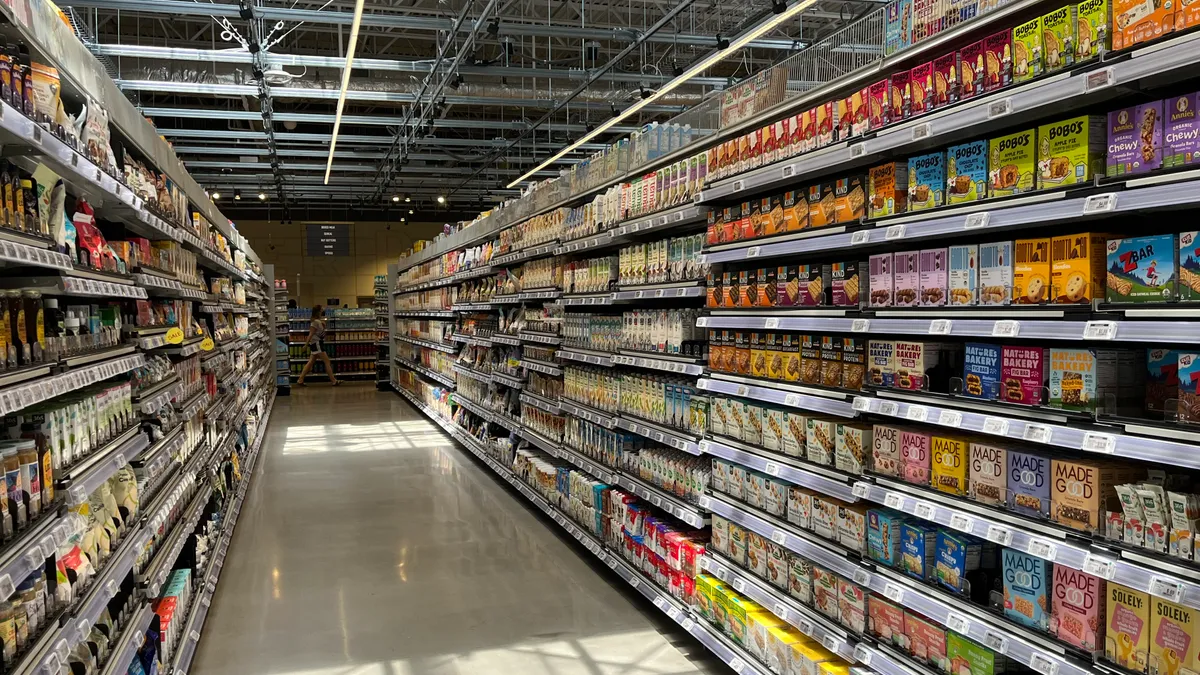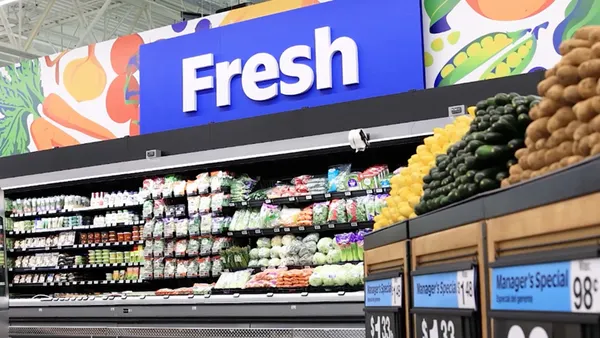Dive Brief:
- Consumers have recently been stepping up their efforts to save money when shopping for groceries, with more than half looking to buy more items on sale, according to survey data released Wednesday by research firm The Feedback Group.
- Shoppers are also increasingly turning to private label goods, paying attention to paper and digital flyers and comparing prices for items at multiple stores, the findings show.
- People are putting a priority on sidestepping inflation even as the rate of price increases has sharply slowed in 2023 compared with the levels seen last year.
Dive Insight:
The Feedback Group’s survey results suggest that shoppers remain highly sensitive to food prices — and believe that grocery stores are benefiting handsomely from inflation.
On average, participants in the research think their primary grocery store generates a net profit of 35%, up from 33% last year. Just 48% of the 1,200 in-store grocery shoppers who took part in the study, which was conducted in June, said they agreed that the grocery store they tend to shop at most was “on my side when it comes to inflation.”
In an illustration of the defensive posture consumers have been taking when visiting supermarkets, the percentage of shoppers who reported they are buying more goods on sale rose to 52% this year, up 9% from last year. More than a third of respondents (36%) said they are buying fewer items on impulse, up from 25% of survey participants in 2022.
Consumers are also increasingly buying less costly but similar products, buying more goods in bulk and cutting back on purchasing organic items as they continue to embrace price-centric shopping behaviors. Notably, shoppers are becoming more willing to sacrifice nutrition in their quest to save money, with 22% of respondents to the survey this year saying they buy food that is less healthful but also lower in price, compared with 15% in 2022.
Doug Madenberg, chief listening officer of The Feedback Group, said the firm’s research reflects a disconnect between measures grocers have taken to focus on value and people’s understanding of inflation.
“The combination of shoppers’ grossly inflated perception of supermarket profits, and their dissatisfaction with responsiveness to their inflation concerns, signals a pressing need for stores to employ thoughtful price strategies and reframe their value proposition in order to maintain trusting relationships with shoppers,” Madenberg said.














